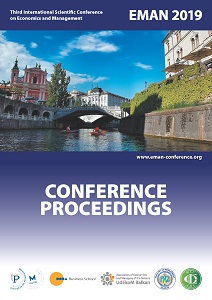ETHICS OF THE LEADER – AN ESSENTIAL CONDITION FOR BUSINESS SUCCESS
ETHICS OF THE LEADER – AN ESSENTIAL CONDITION FOR BUSINESS SUCCESS
Author(s): Buzamat Genoveva, Silvia Patruica
Subject(s): Business Economy / Management, Business Ethics
Published by: Udruženje ekonomista i menadžera Balkana
Keywords: ethics; responsibility; leader;
Summary/Abstract: The mission of ethics is not only to expose the theoretical aspects of morality, but also to be a practical, real guide in guiding and improving the moral life of society. Defined over time in different ways, depending on the context or the specific field of practical applicability, ethics has been focused on the principles and standards that should govern the social relationships between individuals and organizations and have always prompted the interest of those interested in living in a better world, mindful of the needs and aspirations of others, to appreciate true human values and to promote exemplary patterns of behavior. The role of ethics is to help people and institutions decide what is best to do, what criteria to choose and what their moral motivations are in their actions. For Romanian companies confronted with the difficulties arising from the transition from one society to another, from one system of values to another, business ethics is not only a new issue but a very important one. Achieving the balance between ethics and profitability in a society in which there is a major competition in capital and wealth, accumulation is proven to be a problem hard to solve. In Romania, managerial ethics is of particular importance as compared to other countries with well-established market economy mechanisms. Ignoring ethical business development under the pretext that law enforcement (which are often contradictory) is sufficient is the same as ignoring the fact that managers are not simply executives when faced with decisions with ethical implications, they have their own values, often being forced to choose between personal aspirations and organizational responsibilities.
Book: EMAN 2019 / 3 – Economics & Management: How to Cope with Disrupted Times - CONFERENCE PROCEEDINGS
- Page Range: 307-317
- Page Count: 11
- Publication Year: 2019
- Language: English
- Content File-PDF

